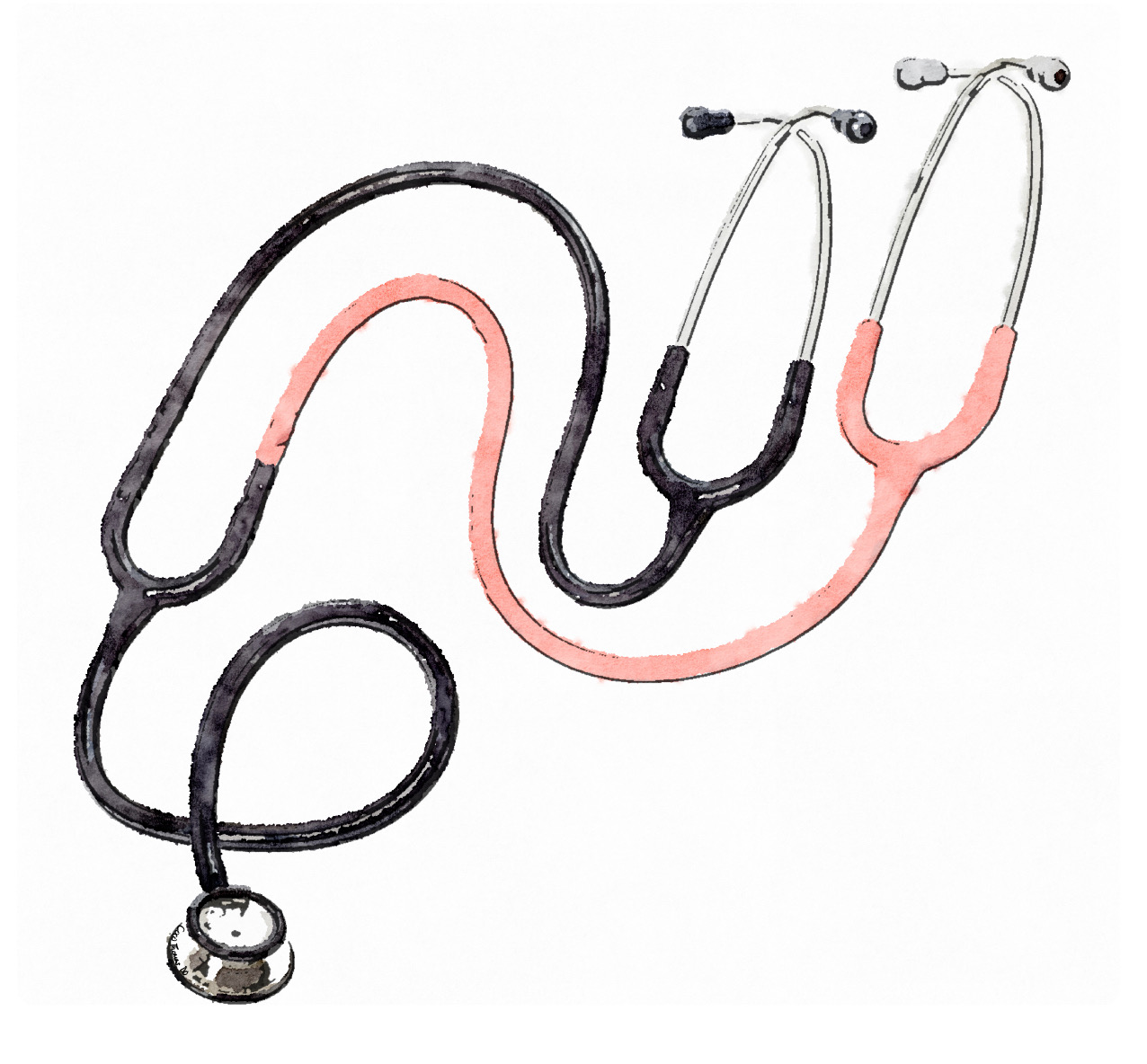Tanner Smith is a sensitive, empathetic redhead with a sense of understanding that goes deeper than he realizes. He has an interest in concepts he can’t quite wrap his head around, such as space and black holes, along with a passion for medicine and education. After graduating from Gettysburg College in 2018 with a BS in health sciences, he taught students ranging from kindergarten to freshman year through the college’s “Advancing Science” program. I met Tanner on a sunny day at medical school orientation, perhaps a little too early in the morning for our liking. This month’s column is focused on his non-traditional journey to medicine.
Tanner always planned on becoming a physician, but found himself with a gap year before medical school. During this time, he began teaching different levels of students and soon realized how much he enjoyed tailoring concepts to fit the needs of his varied audience. He told me about his first failed lesson in anatomy, when he learned the hard way that kindergartners can get rowdy and don’t quite know their colors yet.
Taking each class in stride, he not only taught lessons, but also learned them. The “Advancing Science” program received a National Oceanic and Atmospheric Organization (NOAA) grant, providing the opportunity to educate students outdoors about humans’ impact on the Chesapeake Bay Watershed. Although his ultimate career goal was not teaching, exploring different concepts in science gave Tanner the opportunity to indulge his other interests while applying to medical school.
Tanner’s transition into medical school was difficult at first, a common theme for many first year students. His biggest challenge was jumping back into classes after a year, but with a much heavier workload than he was used to. As he powered through the most difficult courses at the Philadelphia College of Osteopathic Medicine, he kept all of our spirits high with his sense of humor and kindness, usually by cracking jokes after a particularly dense lecture.
During our Primary Care Skills course, medical students see standardized patients six times a year. This early exposure to patients can be stressful at first, but Tanner utilizes the skills he learned as a teacher to empower his patients. After spending a year educating a variety of different age groups, he finds it easy to communicate concepts to his patients. Educational materials and medical concepts are recommended to be conveyed to patients at a fifth or sixth grade reading level. The communication skills Tanner developed as a teacher give him the ability to provide this much-needed information in a digestible form.
Looking back on his time teaching, Tanner can see the parallels between his two careers. Each day he was assessing the needs of his individual students and diagnosing them by identifying their areas for improvement. He came into each lesson with a plan for the day, including a backup plan (his flexibility was often necessary). Exams gave the ability to evaluate the implementation of those plans and adjust accordingly. As a physician, he plans on repeating this process of assessment, diagnosis, planning, implementation and evaluation until his patients are healthy.
As a hopeful cardiologist, education will be the cornerstone of Tanner’s career. Although he isn’t sure if he will teach students in the classroom, he does plan on helping medical students and residents gain a thorough understanding of the diseases they treat. He realizes that he can make a difference in his patient’s lives by teaching them about their diseases, because the key to medication compliance is patient education and a multidisciplinary approach. He hopes that in 20 years, his patients will remember his empathetic and informative approach to care. Before the conclusion of our interview Tanner emphasized, “I never forget the effect the patient has on me too. Each person I evaluate has an impact on my approach to patient care.” One lesson from an attending he never forgets is “the day you stop learning is the day you are doing something wrong.” Tanner acknowledges that as a physician, he will be a lifelong learner.
Image credit: Custom drawing by Megan Pattoli for this column.
After working in the emergency room as a registered nurse for three years, Coco made the transition into medical school at Philadelphia College of Osteopathic Medicine. The column Switching Stethoscopes describes a medical student’s journey from nurse to doctor, while reflecting on the “non-traditional” path some students take to become a physician.


